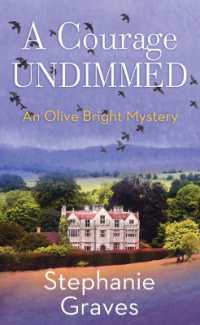- ホーム
- > 洋書
- > 英文書
- > History / World
Full Description
The Dutch seventeenth century, a 'Golden Age' ridden by intense ideological conflict, pioneered global trade, participatory politics and religious toleration. Its history is epitomized by the life and works of the brothers Johan (1622-1660) and Pieter de la Court (1618-1685), two successful textile entrepreneurs and radical republican theorists during the apex of Dutch primacy in world trade. This book explores the many facets of the brothers' political thought, focusing on their ground-breaking argument that commerce forms the mainstay of republican politics. With a contextual analysis that highlights the interaction between thinking and acting, between intellectual and cultural history, the book reveals the international significance of this commercial republicanism and it proposes a novel, rhetorical approach to seventeenth-century Dutch political culture.
Contents
Acknowledgment
Introduction
1. THE MAKING OF AN OEUVRE
A Humanist Education
The Dutch Debate
The Making of an Oeuvre
Conclusion: Politics as a Ballgame
2. THE RHETORIC OF THE MARKET
Persuading the Passions
In the Public Arena: Rhetoric in Action
Fables and Frankness
Conclusion: The Rhetoric of the Market
3. WISE MERCHANTS
Hobbes and the Foundation of the Commonwealth
Citizenship in Theory and Practice
The Ethics of Self-Interest
Representing the Wise Merchant
Conclusion: Commercial Citizenship in Perspective
4. THE COMMERCIAL COMMONWEALTH
The Batavian Athens
The Politics of Free Trade
Monarchy Dethroned
Towards a Merchant Democracy
Conclusion: The Radical Republic
5. CONCORD AND TOLERATION
The Erasmian Moment
The Relation between Church and State
Toleration: Pluralism for the Sake of Unity
Epilogue: From Freedom of Religion to Freedom of Speech?
CONCLUSION
The Brothers De la Court and the Commercial Republican Tradition
Bibliography
Index





